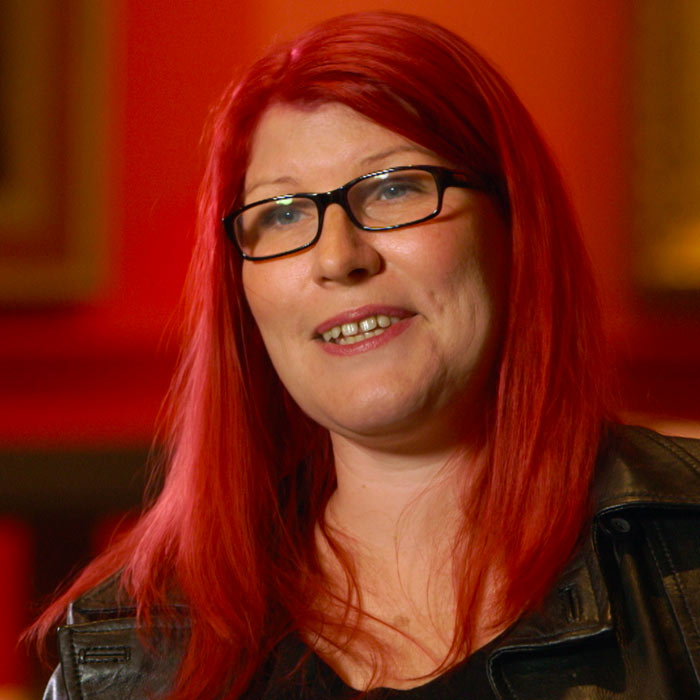Disability Rights
I realised that I was only going to get one shot at travelling across the globe to meet these people so I’d better take my camera kit with me too. At the time I thought of it as filming my research but it quickly became clear that these interviews were to be the basis of my film.
I travelled alone for 3 weeks in England and another 3 weeks in America carrying my camera, sound gear, tripod and lighting kit. The budget was limited so I used a lot of public transport and learned first hand how difficult stairs can be when you have wheels. I met and interviewed many more people than I was able to include in the final cut of Defiant Lives.
It was a huge learning curve for me trying to digest the stories I was hearing and plot them into my film. Here are some stories of some of the people I met. I will add more characters from time to time.
– Sarah Barton – Filmmaker


Johnny Crescendo aka Alan Holdsworth
Johnny is a true icon and legend of the worldwide disabled people’s movement. Johnny’s songs form a key part of the soundtrack of the disability rights movement and feature in Defiant Lives.
He is a tireless activist whose history spans the early day of the formation of the disability rights movement through the heights of direct action to the philosophy of the future. He was a founder of the Direct Action Network (DAN) in the UK in the 1980’s and moved to America in the 1990’s where he became a key organiser for ADAPT.
Recently Johnny was selected by his peers as one of the keystone artists in the UK’s National Disability Arts Collection Archive. Johnny’s interview for Defiant Lives was recorded at is home outside Philadelphia on the 15th October 2010. Since then he has travelled to Melbourne to share his activism with young disabled people and was integral to the 2012 Melbourne tram protest that features in the film. Johnny has been a key mentor, consultant and friend of the filmmakers over the many years it has taken to bring Defiant Lives to the screen.
Zona Roberts
When I interviewed Zona Roberts on 28th October 2010 she was 92 years old. I was only in my 40’s but after weeks travelling and filming across the UK and America I had come down with a serious cold and was drugged to the eyeballs on cold medication just to get through the final day of my filming journey. Zona was nimble and had way more energy than I could muster. That day I recorded three interviews in the same street in Berkeley. Zona, Joan Leon and Susan O’Hara were all neighbours living within walking distance of one another so I walked between each home. When Zona helped me carry my camera gear from her place to Susan’s house I struggled to keep up with her as she took off along the street.
I was thrilled to be able to interview Zona and be in the house where Ed Roberts had lived for the last few years of his life. Zona has told Ed’s story many times but what I realised as I interviewed her was that she was a trailblazer and activist in her own right. There’s only a fraction of their story in Defiant Lives and it definitely warrants further reading.
Zona is still going strong now well into her 90’s and you can read a recent interview with her here to learn more detail about her life of activism and the impact of her son Ed Roberts.
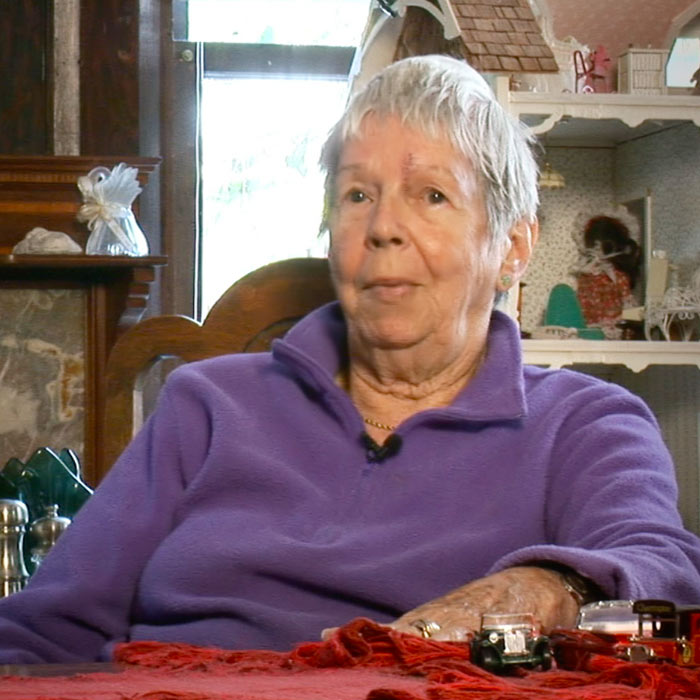
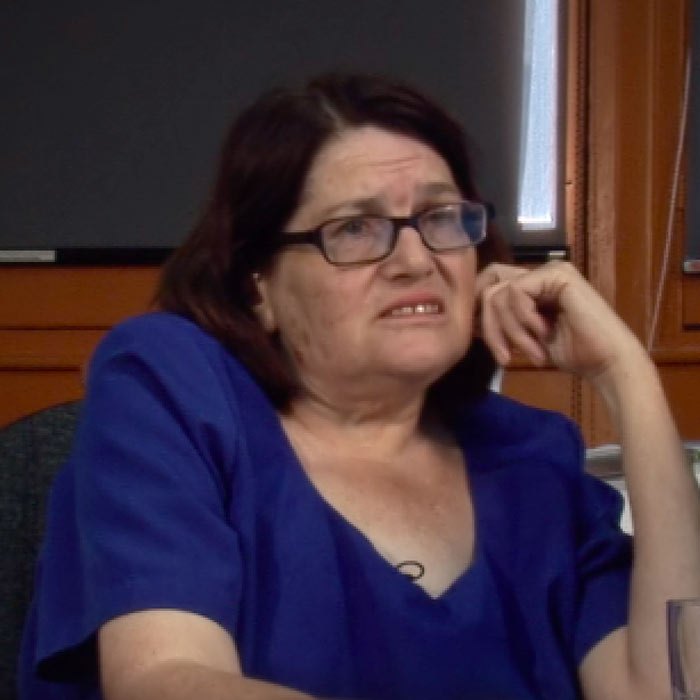
Lesley Hall
My interview with Lesley Hall was conducted in her office in Melbourne when she was working as CEO of the Australian Federation of Disability Organisations (AFDO) on 24th April 2012. Lesley was a feminist and disability advocate who had been involved with feminist issues since 1972 and had worked in various jobs empowering low income, indigenous and people with disabilities in housing, accommodation, arts, human rights and disability rights. In the early 1980’s she lead a band of disabled women in protest against the use of beauty quests to raise money for disability charities. You can read her article from that time about women with disabilities and beauty here.
Lesley’s activism and advocacy work demonstrated the depth of her commitment to social justice for disabled people throughout the world. Lesley Hall died suddenly in October 2013 and her brother Frank Hall Bentick (who also features in Defiant Lives) wrote this moving tribute to his remarkable sister.
Liz Carr
Liz Carr came to dinner with her wife Jo on Saturday 8th February 2014. Stella Young was also at our table that night. After dinner I interviewed Liz in my office – the red room, away from the raucous laughter at the dinner table.
Liz is an activist and performer, most recognisable for her role as Clarissa in the BBC series Silent Witness. Liz told me she was influenced by the disability arts scene in England during the 1980’s and 90’s and in particular the Tragic But Brave Show that starred Johnny Crescendo, Wanda Barbara and the late Ian Stanton. She was also influenced by “The Social Model of Disability”, which is central to the Defiant Lives story. Liz said, “I love the social model with a passion” and went on to explain how she learned about he social model as a teenager and how it resonated so completely with her experience of disability.
We talked also about euthanasia law and her involvement with the group Not Dead Yet, a topic which unfortunately we were unable to explore in the film. Liz’s latest show is “Assisted Suicide The Musical” which is touring Australia in March 2017.
There’s a bit more about Liz Carr here
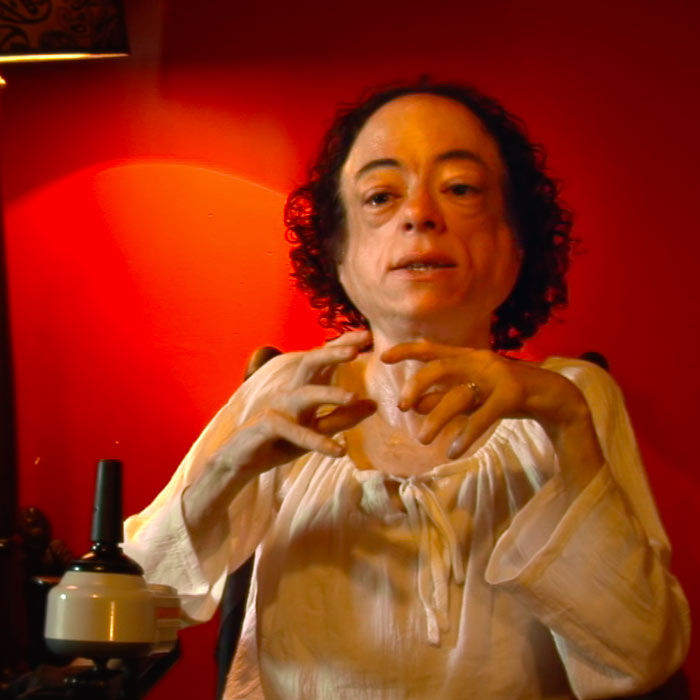

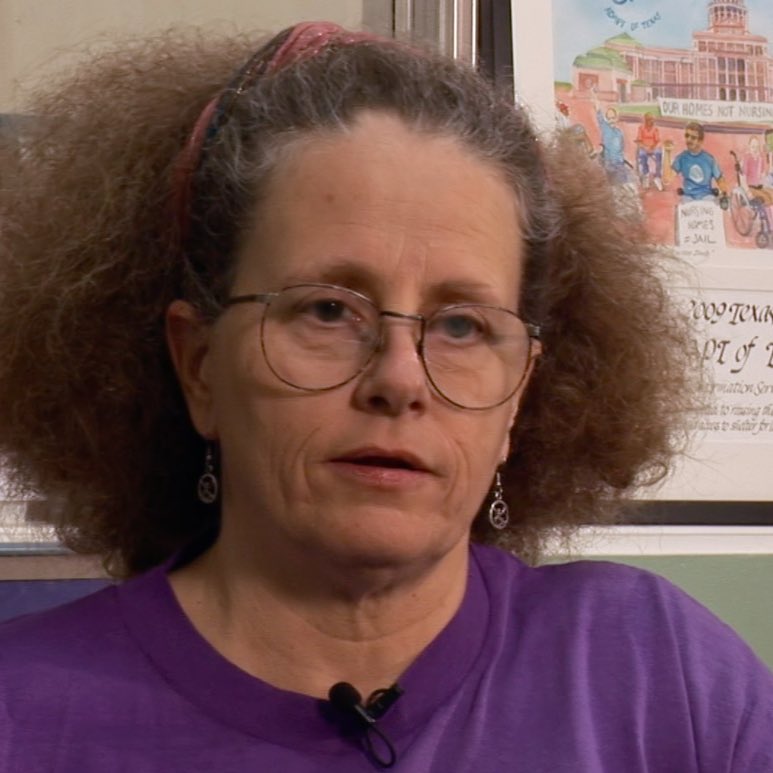
Bob Kafka and Stephanie Thomas
On 22nd October 2010 I was in Austin Texas to interview Bob Kafka and his partner Stephanie Thomas who run ADAPT in Texas and guide policy and activism as national organisers for ADAPT throughout the country. Since they met in 1984 and founded ADAPT Texas they have participated in dozens if not hundreds of rallies and actions across the United States.
The day I visited their office was quiet. The striking ADAPT flag on the wall immediately presented itself as the perfect backdrop for my interview with Bob. It’s a version of the American flag with the stars in the corner united into the outline of a wheelchair. Finding a second setting for my interview with Stephanie was not quite as easy but I was able to set up on the other side of the room for something that looks completely different.
Bob describes himself as a “policy wonk” and talked about the transition that ADAPT made once they had succeeded in pushing for accessible public transport and decided to move on to prioritising getting disabled people out of nursing homes as their next objective.
Unlike Australia where the vast majority of disabled people have moved out of institutions in a campaign that got going in the early 1980’s, America’s nursing home industry is a powerful lobby group that works hard to protect their business model by pushing to prevent government funding for disability support from being used in the community. At the time I interviewed Bob and Stephanie they were campaigning hard for the Community Choice Act, which came into law in 2011.
You can read Bob’s own story as part of the ADAPT 25 year history project here
Samantha Connor
We wanted an Australian activist to guide audiences through the story and provide and overview of how all the elements of the disability rights movement intersected and we thought Samantha Connor was just the person for the role. We found a red room at the State Library of Victoria to match Sam’s flame red hair. On this day I had a full film crew to help with filming and I barely knew what to do with myself.
Samantha Connor is a disability and human rights activist, wheelchair user, writer and self-proclaimed social media assassin. She has held a number of prominent positions in the disability sector including Vice President of People with Disability Australia. Samantha has a passion for the prevention of violence against disabled people and an interest in the correlation between societal attitudes and hate crimes, including crimes against autistic individuals. She has a strong background in systemic advocacy in the areas of disability and disadvantage and is currently the Convenor of Yellow Sub, a disability rights organisation.
As a disabled woman living in a small town in regional Western Australia, she is intensely conscious of the importance of communities that are brought together by geography, circumstance, passion and the desire to bring about change. She has a violent dislike for inspiration, pity and tragedy porn and bad ‘disability awareness’ campaigns and is an outspoken and unapologetic change maker. Samantha is a founding member of the Bolshy Divas, a strong advocate for disability pride and the owner of two bulldogs and a cat named Schroedinger.
